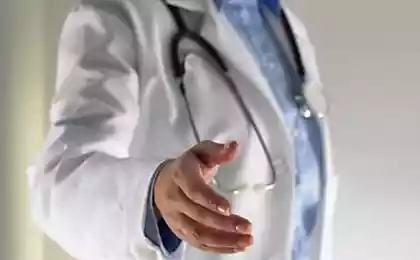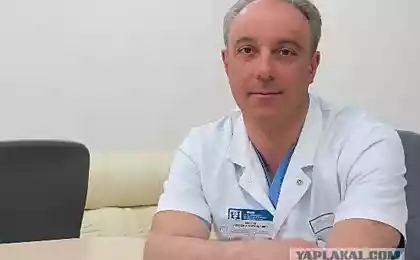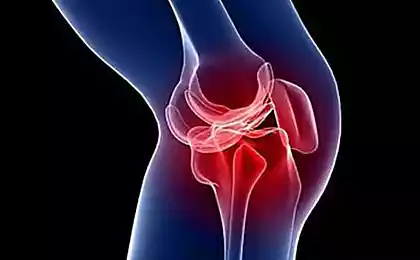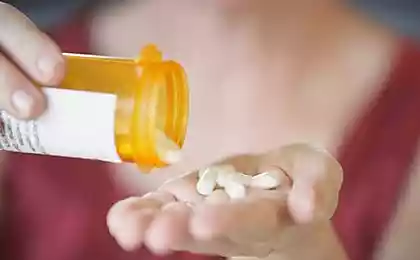504
How to cure disease without drugs
Many disease, bringing terror to the people of the past, today almost forgotten. Doctors quickly coped with them as soon changed conspiracies, bloodletting and doubtful, and even dangerous drugs (such as mercury) on scientifically proven drugs and methods. However, the men in white coats are still a lot of work, and soon they may again revise some of his principles of treatment. And in favor of a completely unexpected direction.
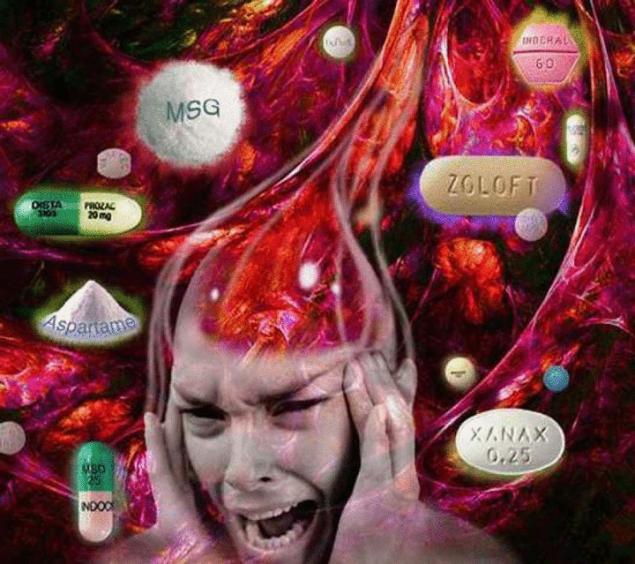
Agree with nerves In April 2014, the U.S. Agency DARPA announced the creation of the Department of biological technologies. The symbolic event, given the specificity of the Agency. Its mission is to look to the future and to turn fantasy into reality. In one project, the division intends to develop the technology of brain stimulation, corrects nervous disorders (from depression to chronic pain). The project SUBNETS (Systems-Based Neurotechnology For Emerging Therapies) is notable for the fact that the right refuses to attempt medical treatment. Experts DARPA has chosen a different path, where exposures are not chemical properties of cells and their electrical activity, the stimulation parameters should depend on the response of neurons. In fact, this direct dialogue with the nervous system.
In medicine, electrical stimulation is applied than a decade, and this method sometimes brings success where powerless medicine. Feeding the signal through the electrodes deep in the brain start the process of recovery even for patients in a state of minimal consciousness, as reported in 2007, researchers at the Department of neurology medical College of Cornell University. It's like waking up: the person begins to move, to eat and to speak. In this way, trying to help people suffering from depression, obesity or Parkinson's disease. But technology has one crucial drawback — you have to open the skull. So widespread it does not receive. It would be great to find a softer way to influence the nervous system, while avoiding the side effects of pharmacology. In other words, to come up with a treatment without drugs and without traumatic interference in the body. But is it realistic?
Treatment without medication In search of an answer should refer to research Fabrizio Benedetti, a neurophysiologist from the University of Turin. This is one of the leading experts, specifically examining the effects of placebo, and in his experiments he uses deep brain stimulation. As therapy suffering from Parkinson's disease in the region of the subthalamic nuclei serves the electrical impulses. This reduces the excessive activity of neurons in this area leads to improvement in health and movements of the patient. However, Benedetti before starting the stimulation, done patients injection, convincing them that introduces an effective remedy. But in fact, patients were administered normal saline, medical "dummy" without any medicinal properties. Moreover, inserted into the brain electrode was used for stimulation, but only for reading the activity of cells. The result of the experiment was completely unexpected. After injection, patients began to move easier, and the level of excitement in their subthalamic nuclei decreased as if they received a series of pulses. Somehow the brain independently normalized mode of operation in response to fiction. So scientists first managed to register a placebo effect at the level of individual neurons.
Today such effects can not be taken lightly. As it turned out, the placebo may be not only tablet fake or illusion electric impact, but also the imaginary surgery. The prestigious journal The New England Journal of Medicine has repeatedly published articles that imitation lavage of the knee joint has the same positive effect as the real arthroscopy: patients get rid of arthritis.
Some medications don't get official sales, because pre-tests are no better than a placebo. But this active substance, developed by experts for a specific biochemical function. Here we are faced with an unexpected phenomenon — the ability of the body to start the process of recovery with the help of the psyche. This does not always work, and its possibilities are limited. But their real limit is not known.
Medicine of the future will Allow to give a risky forecast: medicine will be based on the control mechanisms of self-healing. At least for part of the violations. Doctors will learn to engage in an indirect dialogue with the nervous system, choosing the right incentives in each case. Placebo is not just an inert something, it triggers the whole cascade of biochemical changes, including endocrine, immune and nervous system. That is why the study of placebo effects today are paying serious attention. Having studied the phenomenon at a fundamental level, perhaps, will be able to find a way to increase.
Set forth scenario follows the idea of the famous psychologist Nicholas Humphrey of Darwin College, Cambridge University. He suggests that most of human history doctors and healers worked due to the placebo effect. Their recipes had very little to do with the physiological component of the disease. Nevertheless, even absurd methods gave some positive effect. Humphrey distinguishes the "system health management" as part of the overall control of homeostasis. This system gradually, in the course of cultural evolution has become dependent on the presence of doctors, medicines and procedures. But all the time she acts spontaneously, by itself. Science will take it under control and will greatly enhance its capacity and capabilities, although, of course, patients will not cram mercury or magical potions. However, future therapies may seem even more bizarre.
Possible mechanisms of placebo Use of a placebo can reduce pain by opioid or narcotic effects of expectations and/or conditioned-reflex mechanisms. Produced by the body opioids can have inhibitory effect on the respiratory centers. The sympathetic nervous system of the heart, adrenaline-secreting, can also be suppressed during the anesthetic placebo, although the mechanism is unknown (reduction in pain and/or corrective action of opioids). Cholecystokinin antagonizes the effect of endogenous opioids, thereby reducing the response to placebo. Placebos can also affect serotonin release in the pituitary and adrenal glands, mimicking the effect of some painkillers.
Fabrizio Benedetti, Professor of neurophysiology and human physiology Department of neuroscience medical school of the University of Turin:
"The public is interested in placebo effect, because it promises to expand our understanding of the internal capabilities of the person. Scientists because of the influence of beliefs on human behavior promises opportunities for studying internal control of emotional, sensory and peripheral processes. The study of placebo is essentially a consideration of how the context of beliefs and values that forms in the brain processes of perception and emotions and ultimately affects mental and physical health. Modern neuroscience examines the idea that subjective expectations and values have a definite physiological basis that can have a significant impact on the thinking, motor processes and internal homeostasis
author Denis Tulinov
source: popmech.ru
Source: /users/1080

Agree with nerves In April 2014, the U.S. Agency DARPA announced the creation of the Department of biological technologies. The symbolic event, given the specificity of the Agency. Its mission is to look to the future and to turn fantasy into reality. In one project, the division intends to develop the technology of brain stimulation, corrects nervous disorders (from depression to chronic pain). The project SUBNETS (Systems-Based Neurotechnology For Emerging Therapies) is notable for the fact that the right refuses to attempt medical treatment. Experts DARPA has chosen a different path, where exposures are not chemical properties of cells and their electrical activity, the stimulation parameters should depend on the response of neurons. In fact, this direct dialogue with the nervous system.
In medicine, electrical stimulation is applied than a decade, and this method sometimes brings success where powerless medicine. Feeding the signal through the electrodes deep in the brain start the process of recovery even for patients in a state of minimal consciousness, as reported in 2007, researchers at the Department of neurology medical College of Cornell University. It's like waking up: the person begins to move, to eat and to speak. In this way, trying to help people suffering from depression, obesity or Parkinson's disease. But technology has one crucial drawback — you have to open the skull. So widespread it does not receive. It would be great to find a softer way to influence the nervous system, while avoiding the side effects of pharmacology. In other words, to come up with a treatment without drugs and without traumatic interference in the body. But is it realistic?
Treatment without medication In search of an answer should refer to research Fabrizio Benedetti, a neurophysiologist from the University of Turin. This is one of the leading experts, specifically examining the effects of placebo, and in his experiments he uses deep brain stimulation. As therapy suffering from Parkinson's disease in the region of the subthalamic nuclei serves the electrical impulses. This reduces the excessive activity of neurons in this area leads to improvement in health and movements of the patient. However, Benedetti before starting the stimulation, done patients injection, convincing them that introduces an effective remedy. But in fact, patients were administered normal saline, medical "dummy" without any medicinal properties. Moreover, inserted into the brain electrode was used for stimulation, but only for reading the activity of cells. The result of the experiment was completely unexpected. After injection, patients began to move easier, and the level of excitement in their subthalamic nuclei decreased as if they received a series of pulses. Somehow the brain independently normalized mode of operation in response to fiction. So scientists first managed to register a placebo effect at the level of individual neurons.
Today such effects can not be taken lightly. As it turned out, the placebo may be not only tablet fake or illusion electric impact, but also the imaginary surgery. The prestigious journal The New England Journal of Medicine has repeatedly published articles that imitation lavage of the knee joint has the same positive effect as the real arthroscopy: patients get rid of arthritis.
Some medications don't get official sales, because pre-tests are no better than a placebo. But this active substance, developed by experts for a specific biochemical function. Here we are faced with an unexpected phenomenon — the ability of the body to start the process of recovery with the help of the psyche. This does not always work, and its possibilities are limited. But their real limit is not known.
Medicine of the future will Allow to give a risky forecast: medicine will be based on the control mechanisms of self-healing. At least for part of the violations. Doctors will learn to engage in an indirect dialogue with the nervous system, choosing the right incentives in each case. Placebo is not just an inert something, it triggers the whole cascade of biochemical changes, including endocrine, immune and nervous system. That is why the study of placebo effects today are paying serious attention. Having studied the phenomenon at a fundamental level, perhaps, will be able to find a way to increase.
Set forth scenario follows the idea of the famous psychologist Nicholas Humphrey of Darwin College, Cambridge University. He suggests that most of human history doctors and healers worked due to the placebo effect. Their recipes had very little to do with the physiological component of the disease. Nevertheless, even absurd methods gave some positive effect. Humphrey distinguishes the "system health management" as part of the overall control of homeostasis. This system gradually, in the course of cultural evolution has become dependent on the presence of doctors, medicines and procedures. But all the time she acts spontaneously, by itself. Science will take it under control and will greatly enhance its capacity and capabilities, although, of course, patients will not cram mercury or magical potions. However, future therapies may seem even more bizarre.
Possible mechanisms of placebo Use of a placebo can reduce pain by opioid or narcotic effects of expectations and/or conditioned-reflex mechanisms. Produced by the body opioids can have inhibitory effect on the respiratory centers. The sympathetic nervous system of the heart, adrenaline-secreting, can also be suppressed during the anesthetic placebo, although the mechanism is unknown (reduction in pain and/or corrective action of opioids). Cholecystokinin antagonizes the effect of endogenous opioids, thereby reducing the response to placebo. Placebos can also affect serotonin release in the pituitary and adrenal glands, mimicking the effect of some painkillers.
Fabrizio Benedetti, Professor of neurophysiology and human physiology Department of neuroscience medical school of the University of Turin:
"The public is interested in placebo effect, because it promises to expand our understanding of the internal capabilities of the person. Scientists because of the influence of beliefs on human behavior promises opportunities for studying internal control of emotional, sensory and peripheral processes. The study of placebo is essentially a consideration of how the context of beliefs and values that forms in the brain processes of perception and emotions and ultimately affects mental and physical health. Modern neuroscience examines the idea that subjective expectations and values have a definite physiological basis that can have a significant impact on the thinking, motor processes and internal homeostasis
author Denis Tulinov
source: popmech.ru
Source: /users/1080



